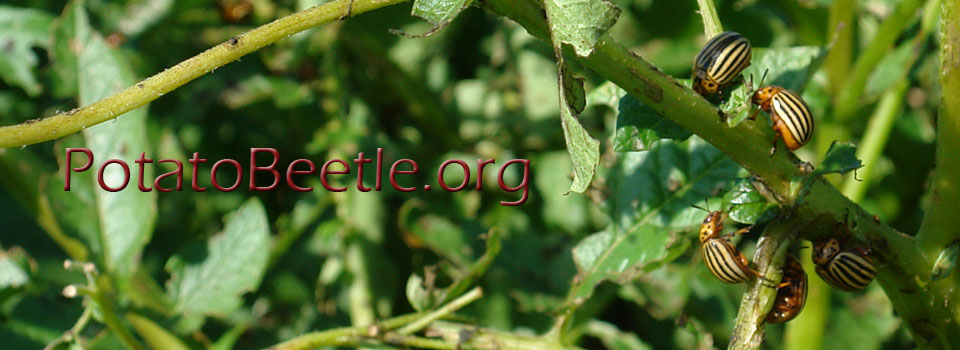Crossley MS, Schoville SD, Haagenson DM, Jansky SH. J Econ Entomol. 2018;111(4):1875-1884. doi: 10.1093/jee/toy120.
Colorado potato beetle, Leptinotarsa decemlineata Say (Coleoptera: Chrysomelidae), is a serious global pest of potato, Solanum tuberosum L. Management of L. decemlineata has relied heavily on insecticides, but repeated evolution of insecticide resistance has motivated the exploration and development of alternative strategies, such as plant resistance. The recent development of two diploid potato families derived from crosses between cultivated and wild potato species (S. chacoense and S. berthaultii) has provided a unique opportunity to reexamine plant traits for resistance breeding. In this 2-yr study, we surveyed select F2 clones for the induction of L. decemlineata mortality and a reduction in defoliation in no-choice feeding assays when challenged with adults and larvae from three sites in Wisconsin. We tested for an association with glandular trichome density and foliar levels of the glycoalkaloids chaconine and solanine. Several potato clones demonstrated resistance in specific feeding assays, but none excelled consistently across experiments. Mortality and defoliation generally differed significantly among L. decemlineata populations, which could be indicative of heritable variation in beetle responses to plant defenses or variation in the physiological status of the beetle populations tested. Contrary to expectations, higher trichome density increased mortality or decreased defoliation in only a few cases, and levels of mortality and defoliation were unrelated to foliar glycoalkaloid content, warranting further investigation of the defense mechanisms of resistant clones. In addition to identifying several potential L. decemlineata resistance sources, this study underscores the need to include multiple insect populations in surveys of plant resistance to this diverse pest.
